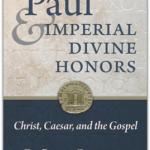Kenneth Burke argues in an essay from Kenneth Burke on Shakespeare (p. 158) that King Lear focuses on the “paradox of substance.” He defines this as follows: “the quandaries whereby one’s personal identity becomes indistinguishably woven into the things, situations, and relationships with which one happens to be identified . . . . it gets down to this: what is a king without a kingdom, a sea captain without a ship, a general without an army, a politician out of office, a job-holder without his job? Insofar as a man’s person gains substance from social powers which are not intrinsic to him yet with which, by reason of his vocation or role in life, he becomes associated, what can he essentially be, once these extrinsic underpinnings are removed?”
The paradox is not a thing of the past, not limited to hierarchical societies with clearly defined social roles: “Florida . . . is a-swarm with oldsters who have willy-nilly abdicated from some office or other and who, though no longer employed by private or public agencies, concoct purposes for themselves by tirelessly seeking to pursue and slaughter as many poor little bits of seal-life as, in the attempt to make a humble, honest living, fall victim to such arbitrary extensions of human acquisitiveness.”
I’m not entire certain what sort of exotic Floridian rites Burke has in mind, but the point is clear enough: Like Lear, they are “unaccommodated men” and leave us wondering if man is man absent his accommodations.














